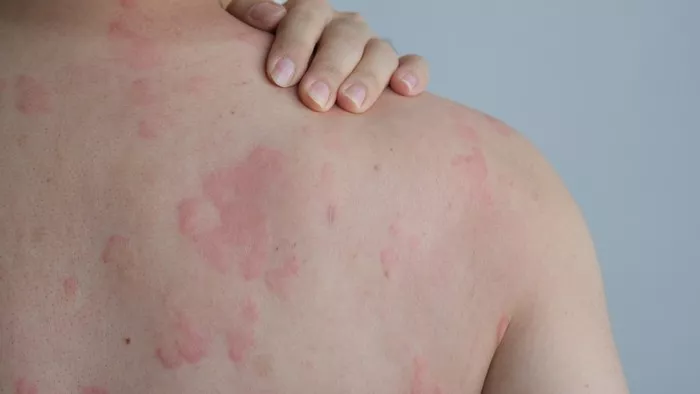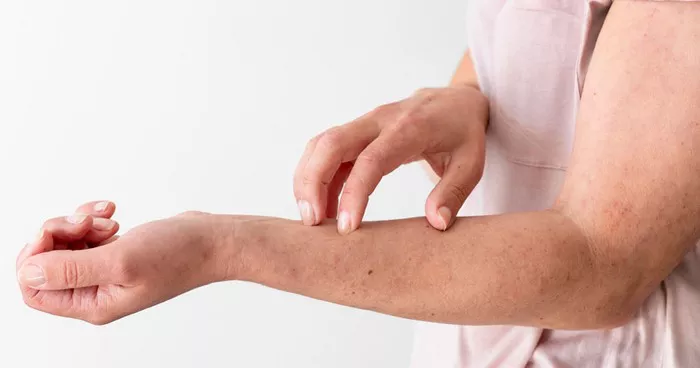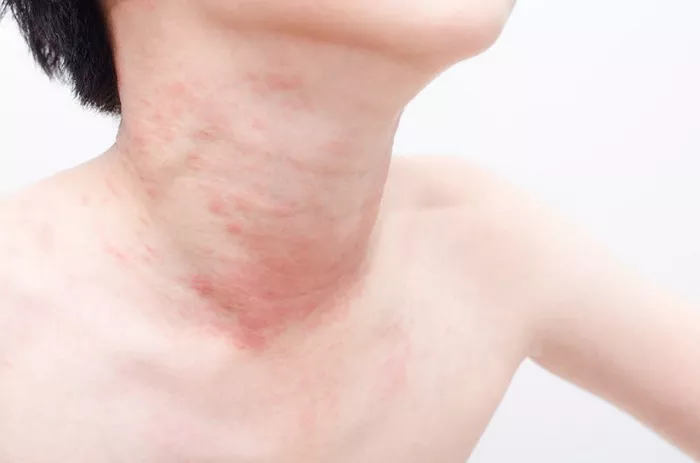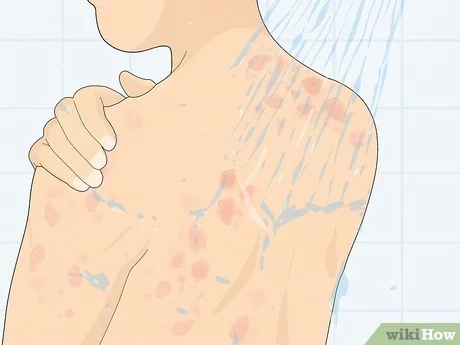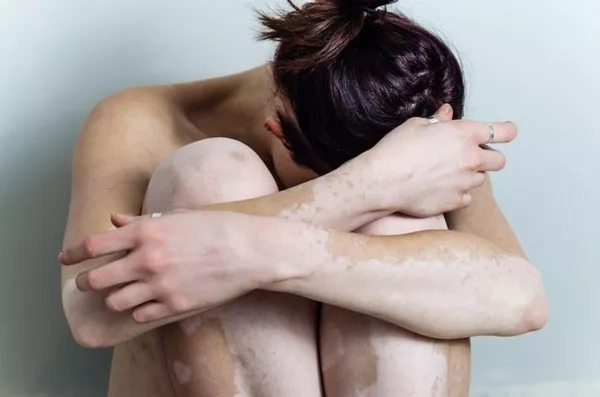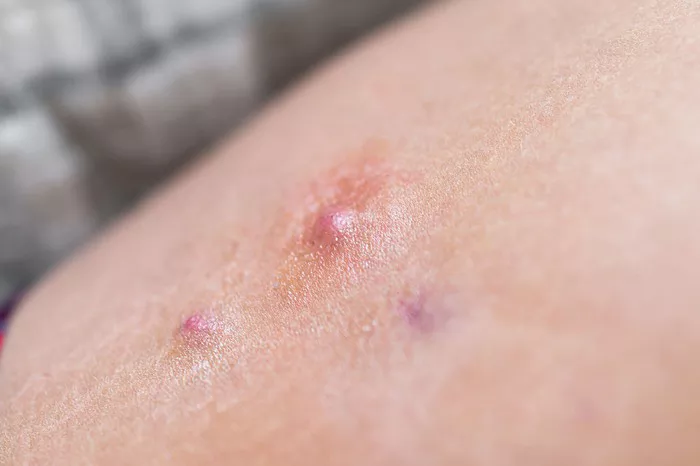Hives, medically known as urticaria, are a common skin condition characterized by red, raised, and itchy welts on the skin. They can be triggered by a variety of factors, including allergic reactions, infections, medications, and even stress. Among the potential triggers, inflammation has been identified as a significant contributor to the development and persistence of hives in many cases. In this article, we delve into the intricate relationship between inflammation and hives, exploring the mechanisms behind their association and the implications for treatment and management.
Understanding Hives: A Brief Overview
Before delving into the role of inflammation in hives, it is crucial to understand the basics of this skin condition. Hives typically manifest as raised, red welts on the skin that vary in size and shape. They can appear suddenly and may disappear within a few hours or persist for several days before fading away. In some cases, hives may be accompanied by swelling of the lips, eyelids, or throat, leading to discomfort and, in severe cases, breathing difficulties.
Hives can be categorized into two main types: acute and chronic. Acute hives usually last for less than six weeks and are often triggered by allergic reactions to food, medications, insect stings, or environmental factors such as pollen or animal dander. Chronic hives, on the other hand, persist for more than six weeks and may be associated with underlying health conditions such as autoimmune disorders, thyroid disease, or chronic infections.
The Role of Inflammation in Hives
Inflammation is the body’s natural response to injury, infection, or irritation, characterized by redness, swelling, heat, and pain. It is orchestrated by the immune system, which mobilizes various cells and mediators to the site of injury or infection to eliminate the threat and promote tissue repair. While inflammation is a protective mechanism essential for maintaining health, dysregulation of the inflammatory response can lead to various inflammatory conditions, including hives.
In the context of hives, inflammation is thought to play a central role in the development and propagation of skin lesions. When triggered by an allergen, infection, or other stimuli, the immune system mounts an inflammatory response that involves the release of pro-inflammatory mediators such as histamine, cytokines, and leukotrienes. These molecules cause blood vessels in the skin to dilate and become leaky, leading to the characteristic redness and swelling associated with hives.
Histamine, in particular, is a key player in the pathogenesis of hives. It is released from mast cells, which are immune cells found throughout the body, in response to various triggers. Once released, histamine binds to specific receptors on blood vessel walls and other target cells, triggering a cascade of events that culminate in the dilation of blood vessels and the leakage of fluid into the surrounding tissues. This process, known as vasodilation and extravasation, results in the formation of the raised, red welts characteristic of hives.
In addition to histamine, other inflammatory mediators such as cytokines and leukotrienes also contribute to the inflammatory response in hives. These molecules can amplify the immune response, recruit additional immune cells to the site of inflammation, and prolong the duration of symptoms. Furthermore, chronic low-grade inflammation, as seen in conditions such as autoimmune disorders or chronic infections, may contribute to the persistence of hives and the development of chronic urticaria.
Clinical Evidence Supporting the Link Between Inflammation and Hives
The association between inflammation and hives is supported by clinical evidence from various studies. For example, research has shown that patients with chronic urticaria often have elevated levels of inflammatory markers such as C-reactive protein (CRP), interleukin-6 (IL-6), and tumor necrosis factor-alpha (TNF-alpha) in their blood. These markers are indicative of systemic inflammation and may correlate with disease severity and treatment response in patients with hives.
Furthermore, histological studies of skin biopsies from patients with acute and chronic hives have revealed evidence of inflammation in the form of perivascular infiltrates of immune cells, including lymphocytes, eosinophils, and mast cells. These findings suggest that inflammation is not only a consequence of hives but may also contribute to their pathogenesis.
Moreover, treatment modalities that target inflammation have been shown to be effective in relieving symptoms and improving outcomes in patients with hives. Antihistamines, which block the effects of histamine on target cells, are the mainstay of treatment for acute and chronic urticaria. Additionally, corticosteroids, which possess potent anti-inflammatory properties, may be prescribed in severe cases or as adjunctive therapy in combination with antihistamines.
Implications for Treatment and Management
The recognition of inflammation as a key driver of hives has important implications for the treatment and management of this common skin condition. In addition to conventional therapies such as antihistamines and corticosteroids, emerging treatment modalities targeting specific inflammatory pathways are being investigated for their efficacy in hives.
For example, biologic agents that selectively target immune mediators such as IgE, IL-4, and IL-5 have shown promise in the treatment of chronic urticaria refractory to conventional therapy. These agents work by inhibiting specific steps in the inflammatory cascade, thereby reducing the production or activity of pro-inflammatory molecules involved in the pathogenesis of hives.
Furthermore, lifestyle modifications aimed at reducing inflammation may complement pharmacological therapy in the management of hives. Strategies such as stress reduction, dietary modifications, and regular exercise have been shown to have anti-inflammatory effects and may help alleviate symptoms in some patients with hives.
Conclusion
Inflammation plays a central role in the pathogenesis of hives, contributing to the development and persistence of this common skin condition. The release of pro-inflammatory mediators such as histamine, cytokines, and leukotrienes leads to vasodilation, increased vascular permeability, and the formation of characteristic skin lesions. Clinical evidence supports the link between inflammation and hives, with elevated levels of inflammatory markers observed in patients with acute and chronic urticaria. Recognizing the role of inflammation in hives has important implications for treatment and management, with targeted therapies aimed at modulating the inflammatory response showing promise in improving outcomes for patients with this bothersome condition.
Related Topics:

